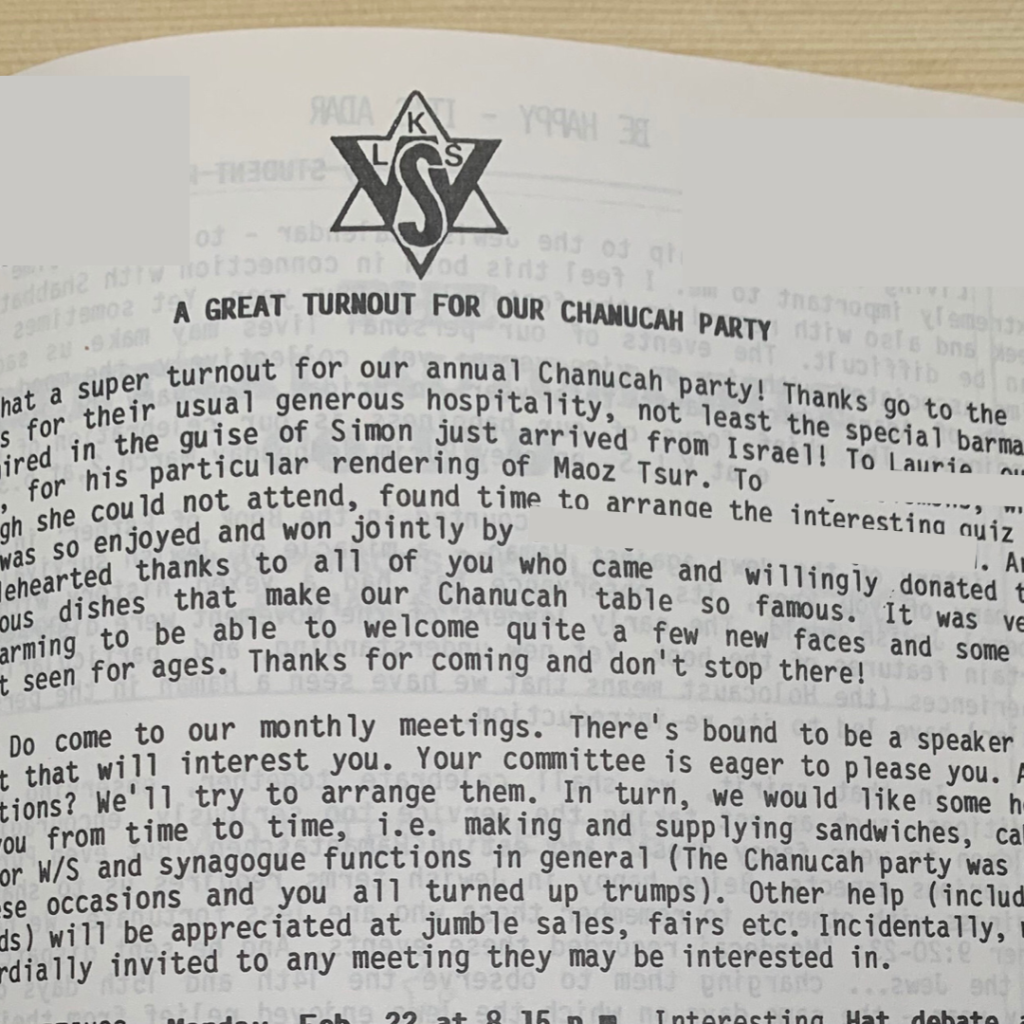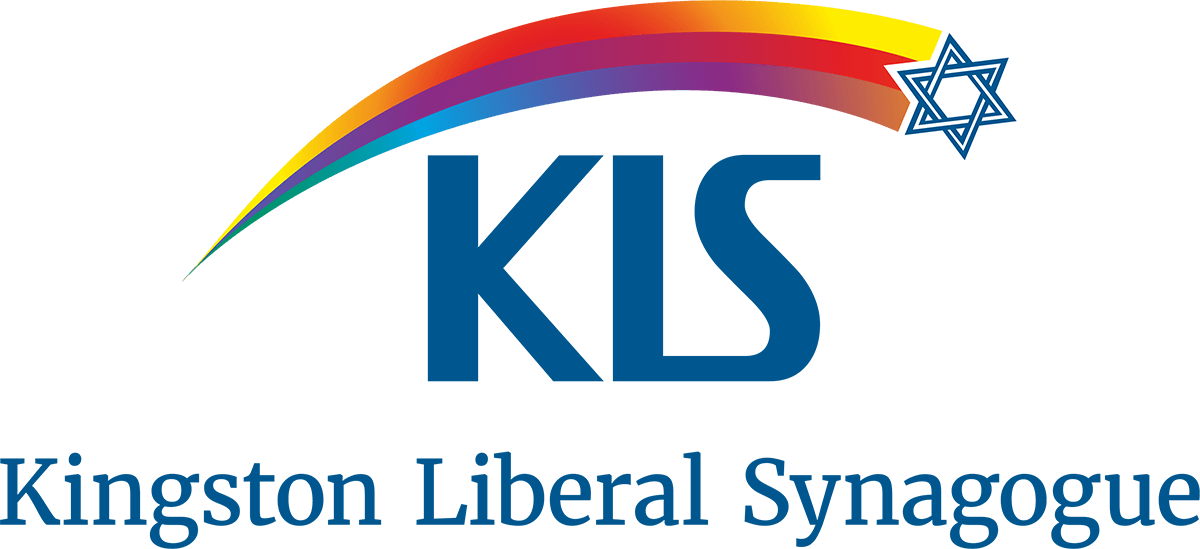Part 3 of our blog series taking a retrospective look back at the history of our community.
Back in 2014-5, KLS Member Howard Webber wrote a series of articles for our community magazine casting a light on days gone by. He had been looking through copies of our publications from the inception of our community in 1967 and throughout the Seventies. We are now re-publishing these articles for a wider audience – we hope you will enjoy Howard’s inimitable style as he accompanies us into yesteryear…….(please note, that where individuals are no longer with us, we refer to them by their initials).
In this article Howard looks back to 1970 and the debates about our name as well as the extent to which Hebrew is used in services. Reading about this debate over 50 years later, we feel that it demonstrates that we have always been a very inclusive community, welcoming those with different levels of Hebrew – and none.
I am the last (and least) person in KLS to be reporting on (and possibly stepping into) a religious controversy, but I came upon this one while preparing the 16 November archive session at KLS, and found it fascinating. It appeared in the pages of Kingston News during 1970.
It began with a distant cloud no bigger than a man’s hand: a letter headed ‘Change of Name’ which argued that ‘one of the reasons why our membership is not increasing as fast as it should be is that we have chosen the wrong name for our Congregation’…. I joined the “Liberal” Jewish Synagogue because I found sympathy with its “liberal” views on Judaism. Now I find I am a member of a “Progressive” congregation… To what or where are we progressing?’
Two letters in in July/August 1970 issue supported this view. One suggested that ‘progressive methods appear so often to be far less sensible than more old-fashioned ones’. The other blew the debate wide open, noting that ‘Kingston’ in our name was equally questionable (‘we have…members in the Congregation from East Sheen, Ham, Wimbledon…’); and – far more explosively – that ‘we seem to be drifting further from the original ideas of the founders of Liberalism…. “Retrogressive” would be more descriptive!’ The writer began her attack on “Retrogressive Jewry” by berating PFJ, the admirable editor of KN, for using in KN ‘pigeon-Hebrew words’ such as Chanukah and Yom Kippur: ‘would you please take pity on the ignorant and stick to English?’

The Chairman, SR, tried to defuse the debate in the September issue. As to Kingston, he noted that two names rejected (in 1967) for the synagogue had been Thames Valley (‘it sounded too much like a bus company’) and Moshe Dayan (‘we all know of the ephemeral glory of military leaders’). As to ‘Progressive’ he looked forward to this being debated at the March 1971 AGM. (Jumping ahead, the April 1971 KN reported that after ‘a most interesting and controversial discussion, the motion [to replace ‘Progressive’ with ‘Liberal’] was put to the vote and defeated’.) And as to ‘pigeon-Hebrew’, he suggested ‘that it is inconceivable that any member of our Congregation needs a dictionary to know the meaning of the few transliterated words that are used in this journal’.
But the temperature remained high. The same month, one of our members wrote that ‘I joined a Liberal movement in order to think and pray in a language I understand’ – and that that more than fifty percent of a recent service had been in Hebrew, ‘which seems to be neither Liberal nor Progressive, but Reform’; while – on the other hand – another argued that the lack of Hebrew in our services raised the question: ‘How close to Christianity are we reaching?’.
Fighting talk, and a challenge that was accepted, the next month, by a member still very much with us. She was deeply concerned at ‘the old jibe at Liberal Judaism that the English in our services brings it close to Christianity’. This, she felt, was ‘naïve’ and represented ‘a failure to appreciate the essence of either Judaism or Christianity’. She provided an eloquent case for prayer in English: ‘prayer in the vernacular has a cogency and an immediacy that no prayer in an acquired language, no matter how fluent or familiar, can have’ and argued for the retention of ‘the delicate balance of Hebrew and the vernacular which has been so…important a factor in Liberal Jewish services in this country during this century’. (Ed’s note: our services how include both Hebrew and English and we feel that the balance between the two is just right!)
The debate went on; I have, however, taken up too much space already. But – if the Editor will indulge me – it is worth providing two examples to show that these debates, in some ways so modern, took place in another time. The first was that the AGM where the Progressive/Liberal motion was debated was attended by 130 people. But it was combined with a ‘Grand Bazaar’. Is the KLS of 2013 missing a trick? (Ed’s note – or the KLS of 2021?!) Second, in May 1970, just before the controversy kicked off, a piece appeared in Kingston News noting that ‘We are always glad to have members of the congregation take part in our services, from time to time, by reading or opening the Ark (the latter, of course, by men only)’. (Ed’s note: as far back as we can remember, genders have had complete equality in all aspects of the Synagogue including opening the Ark).
